Tracking Conflict and Cholera from Space: Using Night Lights to Measure Infrastructure Collapse and Recovery, Population Displacement, and Disease Risk – Dr. Daniel Parker
|
When: Friday, April 18, 2025 (12:30-1:30PM)
Where: 360 Parrington Hall and on Zoom (register here)
1-on-1 meetings: 223 Raitt Hall (sign up here)
We are looking forward to hosting Daniel Parker from the University of California – Irvine on Friday, April 18 in Parrington Hall 360 and on Zoom. This seminar is co-sponsored by the Population Health Initiative. In addition, there are opportunities to meet 1-1 with Dr. Parker throughout the day. Sign up here!
Quantifying armed conflict is challenging, as traditional conflict data often rely on incomplete reporting and typically focus on metrics like the number of airstrikes. However, these measures overlook critical factors such as infrastructure destruction, population displacement, and recovery. In this talk, I’ll discuss how my group has been using satellite-based nighttime lights (NTL) data as a scalable tool for tracking conflict intensity and its downstream effects on public health. Using case studies from Yemen and Ukraine, I’ll show that airstrikes lead to significant declines in NTL, with notable geographic and temporal variation in post-attack recovery. In Yemen, I’ll further demonstrate how NTL can help assess the impact of armed conflict on cholera incidence, providing a means to quantify associations between conflict intensity, infrastructure disruption, and disease risk. The analysis highlights how both the magnitude of conflict and the pace of recovery shape cholera incidence. This approach provides an objective, real-time method for evaluating the cascading effects of conflict on infrastructure and health, with critical implications for humanitarian response and global public health.
(read more)
|
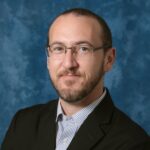 |
|
|
NWFSRDC News and Highlights Corner: Upcoming Events (4/16/25 and 4/24/25)
CSDE Computational Demography Working Group (CDWG) Hosts Jordan Klein on Social Gradients in the Emergence of COVID-19 (4/16/2025)
|
On 4/16 from 10:00 AM – 11:00 AM PST, CDWG will host Dr. Jordan Klein for a research talk. Jordan Klein is a demographer, social epidemiologist, and quantitative and computational social scientist working as a research scientist in the Max Planck Institute for Demographic Research’s Department of Digital and Computational Demography, joint appointed in the laboratories of Population Dynamics and Sustainable Wellbeing, and Migration and Mobility. He earned his PhD from Princeton University’s Office of Population Research, specializing in international comparative epidemiology and computational demography. His current work focuses on understanding the drivers of the spatio-temporal evolution of mortality disparities, especially in emerging and re-emerging infectious diseases.
(read more)
|
 |
Apply for the CSDE Charles and Josephine Hirschman Graduate Student Research Funding Award (4/18/25)
|
CSDE is thrilled to announce the inaugural Charles and Josephine Hirschman Award for student research. CSDE students may apply for up to $2,000 in funds to directly support a research project. Funds may support activities such as the cost of conducting fieldwork, data purchases, the hiring of a translator or transcriber, or participant rewards in surveys. Be creative! All funds must be spent during the 2025-26 academic year and may not be used to pay tuition or your own salary.
(read more)
|
 |
CSDE Science Core – Upcoming Workshop (04/16/25)
| On April 16 (12:30-1:30pm), you’re invited to a webinar about the vast data available through the UW’s Northwest Federal Statistical Research Data Center (NWFSRDC) and how to access those data. Register here to attend.
This webinar is one of several workshops offered each quarter. CSDE offers workshops on data sources, statistical and biomarker methodology, introductions to analysis programs, and more, all given by CSDE staff and faculty affiliates. These workshops are open to all researchers (faculty, staff, postdocs, graduate students, and non-UW CSDE external affiliates). Check out the Spring Quarter workshop offerings here!
(read more)
|
 |
Introducing CSDE’s New Infectious Disease Transmission Modeling Working Group
|
With a critical mass of new affiliates working in the area of modeling transmission dynamics of infectious diseases — CSDE decided to form a new working group! An initial meet-and-greet and planning meeting was held in mid-March, with ten folks in attendance. Now, we’re ready to announce our regular meetings: every fourth Tuesday (summer included!), 3:30 – 5:00 pm, in HRC (Hans Rosling Center (HRC), a.k.a the Pop Health Building).
(read more)
|
 |
Data Access With Federal Administration’s Transition
|
The challenges of data access during federal administrative transitions can happen every four years. What follows are some resources that might be useful. We will continue to update this blog post with new information. If you have any links that could be helpful, please send csde@uw.edu your updated and helpful information. We know that what follows may not provide you with the exact data you need, so let us know what you need and what’s missing and we can try to find where it is located.
(read more)
|
 |
CSDE is Hiring an Administrator!
|
We are looking for a full-time Administrator to support our population science research infrastructure center funded by the NICHD.
With the Director, the Administrator is a primary point person for the development, coordination and implementation of center-wide efforts (including infrastructure and training grants, as well as reporting for internal and external purposes). The Administrator is the chief financial officer and business manager responsible for financial planning, management and overseeing daily center operations, acting independently and responsibly, given general direction from the Director and within the University’s policies and procedures.
(read more)
|
 |
Keeping Up With UW-Relevant Federal Policy Updates and Federal Administration Research Policy
Opportunities to Publish Research Policy Briefs with the Association of Population Centers
|
CSDE is a member of the Association of Population Centers, and through them can offer you or your colleagues the opportunity to have new or forthcoming research that you want to share with policymakers, journalists, educators, or other non-academic audiences. The Population Reference Bureau (PRB), in collaboration with APC, is working to improve the dissemination of population and reproductive health findings. If you have peer-reviewed research on population dynamics, population health, or reproductive health that you would like to share with a broader audience in an easily digestible format, APC and PRB may be able to help. To learn how, visit their website and take a look at recent research policy briefs.
(read more)
|
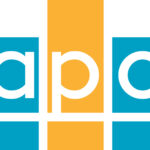 |
Preprint Opportunities through Association of Population Centers
|
CSDE is a member of the Association of Population Centers and through them can offer you and your colleagues access to their preprint publishing platform. Research Scientists, Postdoctoral affiliates and faculty are invited to submit to the APCA Working Paper Series which gathers and disseminates original population science research papers. These working papers are authored or coauthored by scholars who are faculty or postdoctoral affiliates of the Association of Population Centers (APC) population centers.
(read more)
|
 |
Applications Open for Panel Study of Income Dynamics (PSID) Summer Workshop (4/21/25)
|
This five-day workshop from June 16-20 in Ann Arbor, MI will orient participants to the content and structure of the core PSID interview, its special topics modules, and its supplemental studies, including the Child Development Supplement (CDS), the Transition into Adulthood Supplement (TAS), and the 2013 Rosters and Transfers Module. In addition we will discuss topics including the genomics data collected from children and adults as well as new data files which explain family relationships and demographic characteristics over time.
(read more)
|
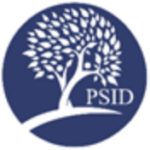 |
Center for Disaster Resilient Communities Seminar on Seattle’s Retrofit Program (4/22/25)
|
The Center for Disaster Resilient Communities (CDRC) is hosting a virtual seminar on Tuesday, April 22nd from 12 – 1 p.m. to hear Amanda Hertzfeld’s (Seattle Department of Construction and Inspections) lecture on “Fixing the Bricks: Developing Seattle’s URM Retrofit Program”. Seattle has over 1,000 Unreinforced Masonry (URM) buildings that pose a collapse hazard in earthquake. In this session, Amanda will discuss the recent adoption of Seattle’s code recognition for URM retrofits, updates to the city’s official URM database,statewide URM efforts, and existing and proposed incentives to make these life-saving improvements more affordable. Learn more and RSVP here.
(read more)
|
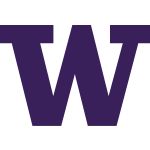 |
Paul & Daisy Soros Fellowship Information Session (4/22/25)
|
The Paul & Daisy Soros Fellowship team will be hosting an info session for UW students on 4/22/25 at 12:00-1:00pm PT. Register to attend here.
The Soros Fellowship provides up to $90,000 in funding for graduate study to immigrants and children of immigrants in the United States. Hear directly from staff at the Paul & Daisy Soros Fellowships about the application process, eligibility requirements, and tips for crafting a strong application.
(read more)
|
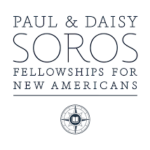 |
Max Planck Institute for Demographic Research Training Partnership Information Session (4/23/25)
|
CSDE collaborates with the Max Planck Institute for Demographic Research (MPIDR) in a doctoral training program called the International Max Planck Research School for Population, Health and Data Science (IMPRS-PHDS). This program is based in Rostock, Germany, but includes 12 doctoral programs in the U.S. and Europe. IMPRS-PHDS students engage with each other through either in-person or virtual workshops in Germany and around the world. Faculty mentors include members of the student’s own committee in their home institution, as well as MPIDR faculty and possible faculty from partner institutions.
Information about the program, the faculty, and partner institutions can be found here.
(read more)
|
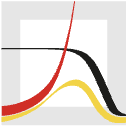 |
American College of Obstetricians and Gynecologists Foundation Welcomes Proposals (4/23/25)
|
The American College of Obstetricians and Gynecologists (ACOG) Foundation welcomes programmatic proposals from nonprofit organizations and research proposals from individual researchers working at nonprofits or institutions that advance gynecologic care and increase health equity and access. Full proposals are due to limitedsubs@uw.edu by 5:00 PM Wednesday, April 23, 2025. Proposals are due to the sponsor 6/13/2025 so you will need to have your materials in to the Office of Sponsored Programs by 6/4/2025 if given the go‐ahead by the Limited Submissions review committee.
(read more)
|
 |
Submissions Open for the 2025 APPAM Fall Research Conference (4/23/25)
|
Submissions are now open for research to be featured at the 2025 APPAM Fall Research Conference. This year’s conference theme is “Forging Collaborations for Transformative and Resilient Policy Solutions.” Submissions are being solicited from the following policy areas (sample included below):
- Education
- Employment and Training Programs
- Health Policy
- Innovations in Science and Technology
- Poverty and Income Policy
- Social Equity and Race
(read more)
|
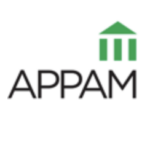 |
Applications Open for IIASA PhD Researcher Position (4/27/25)
The International Institute for Applied Systems Analysis (IIASA) in Austria is seeking a researcher for a 3-year PhD researcher position to study the impacts of climate change on migration and immobility worldwide. Candidates should have strong skills in quantitative methods and modeling, as well as an interest in migration research, climate impact research, or related fields. The position is part of the 2C-RISK project, funded by the European Research Council (ERC), and offers the chance to work on cutting-edge research at the intersection of migration, climate, and risk analysis. (read more)
|
 |
Apply for the UW Democracy & Civic Health Initiative (5/1/25)
|
The Democracy & Civic Health Initiative is pleased to offer a Catalyst Fund that awards small grants to encourage the development of new research innovations for activities and projects that seek to revitalize civic health and bolster democratic institutions across the country. The purpose of this grant is to support faculty members and PI-eligible research staff to develop preliminary data or proof-of-concept needed to pursue follow-on funding or additional concept development to scale one’s efforts.
(read more)
|
 |
*New* Post-doctoral Researcher, Centre for Social Inequalities in Population Health – University of Helsinki (5/4/25)
|
The Max Planck – University of Helsinki Center for Social Inequalities in Population Health is currently seeking to appoint one or more full-time post-doctoral researchers. We welcome applications from researchers with a PhD in demography, sociology, statistics, epidemiology, public health, economics, computer science, and allied fields. The successful candidate(s) will work on one or several of the four research themes of the Center: [1] the links between family and health, [2] the role of genetic factors in shaping health inequalities, [3] international comparisons of health and health inequalities, and [4] developing new methods, in particular longitudinal modelling approaches, methods for causal inference, and techniques leveraging genetic data. Learn more and apply here.
(read more)
|
 |
Apply for William T. Grant Scholars Program (5/7/25)
|
The William T. Grant Scholars Program supports career development for promising early-career researchers. The program funds five-year research and mentoring plans that significantly expand researchers’ expertise in new disciplines, methods, and content areas.
Applicants should have a track record of conducting high-quality research and an interest in pursuing a significant shift in their trajectories as researchers. We recognize that early-career researchers are rarely given incentives or support to take measured risks in their work, so this award includes a mentoring component, as well as a supportive academic community.
(read more)
|
 |
CSDE NIH Grant Writing Summer Program (5/9/25)
|
The CSDE Development Core is once again hosting its annual Grant Writing Summer Program (GWSP) to assist scholars in preparing applications to the National Institutes of Health (NIH). Applications are now open for this program! More info is available here, and the application page here. Make sure to read all the FAQ’s – there’s lots of good info in there! Past participants report great success, and lots of support and even fun along the way.
(read more)
|
 |
Apply for Harry Bridges Center WA State Labor Research Grants (5/22/25)
|
Each year, the Harry Bridges Center for Labor Studies seeks proposals for policy-oriented research directly relevant to policymakers in Washington State. All University of Washington faculty, full-time lecturers, and UW graduate students sponsored by a faculty member are eligible to apply.
Up to $15,000 is available for each grant. Depending on available funding, awards may include a tuition waiver for graduate employees. Please note this waiver does not extend to students in fee-based programs.
(read more)
|
 |
ICPSR Summer Workshop on Applied Methods for Studying Structural Racism, Sexism, and Other Systems of Oppression (5/26/25)
|
The Health and Medical Care Archive, funded by the Robert Wood Johnson Foundation, is sponsoring a workshop during the annual ICPSR Summer Program in Ann Arbor, Michigan. Be sure to apply for this workshop in advance––enrollment is capped at 25 participants. Apply by 5/26/25.
Workshop Instructors: Tyson Brown from Duke University and Patricia Homan from Florida State University
(read more)
|
 |
IMPRS-PHDS: Call for applications (5/30/25)
|
CSDE collaborates with the Max Planck Institute for Demographic Research (MPIDR) in a doctoral training program called the International Max Planck Research School for Population, Health and Data Science (IMPRS-PHDS). This program is based in Rostock, Germany, but includes 12 doctoral programs in the U.S. and Europe. CSDE has one IMPRS-PHDS fellowship application slot available to current CSDE Trainees.
(read more)
|
 |
Lynde and Harry Bradley Foundation Grants (Rolling)
|
The Bradley Foundation is a private grantmaking foundation that honors the principles and example of its namesakes, Lynde and Harry Bradley, by pursuing a mission to restore, strengthen, and protect the principles and institutions of American exceptionalism. The foundation has a rolling proposal process around grants for its Constitutional Order and Informed Citizens initiatives. Projects should have budgets between $25,000 and $200,000.
(read more)
|
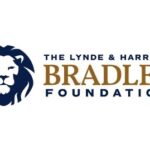 |
Sign up to join the Early Career listserv!
|
We invite early career faculty affiliates to join our new mailing list, csde_earlycareer. Among other things, this is the way to find out info about our quarterly Early Career Affiliate happy hours, and you won’t want to miss those! These will be a great way to meet up with other junior scholars in a fun and casual atmosphere over snacks and drinks.
(read more)
|
 |
|
|



